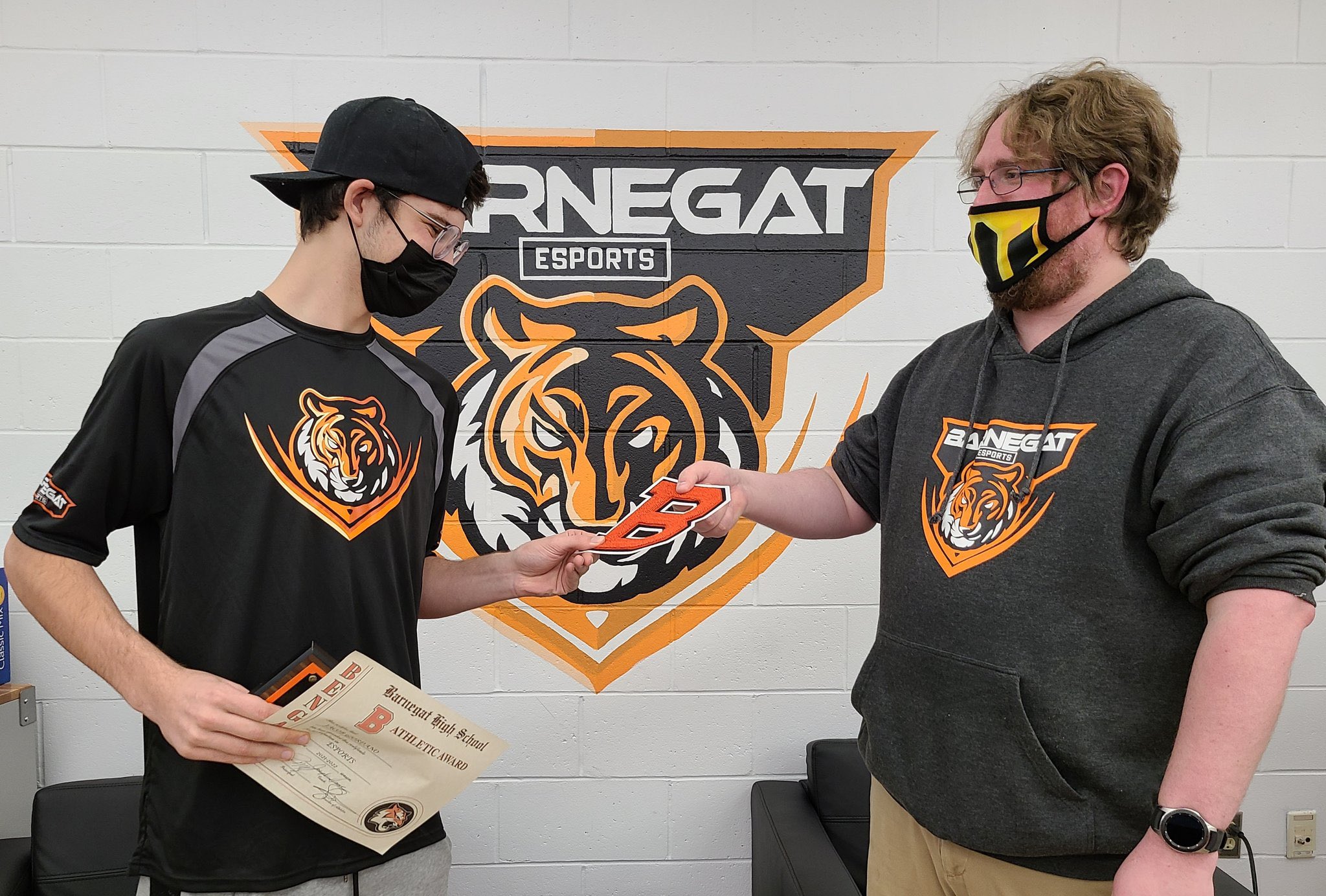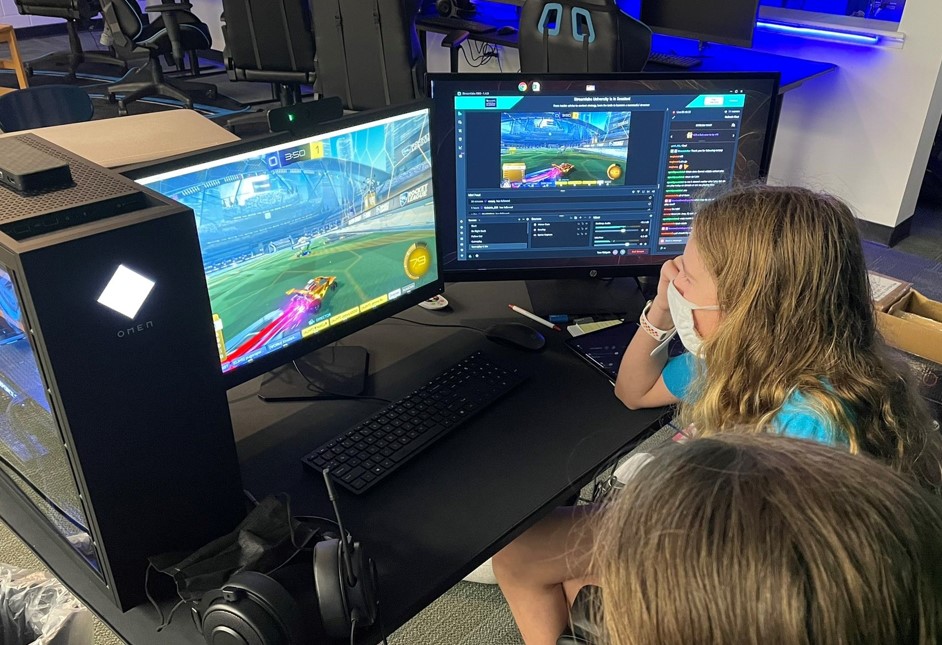Developing Esports Coaches
Developing esports coaches requires much of the same approach as for traditional sports coaches

Part of my ongoing professional development as a traditional sports coach was to attend yearly seminars to stay up-to-date on best practices in coaching and clinics to learn the latest and greatest techniques and drills for football and wrestling. These seminars and clinics were not only expected of me, but also budgeted for by the athletics department and approved as professional development days by administration every year.
The culture in my district of taking athletics seriously and investing in the development of coaches paid off. Every year our athletics teams were competitive and we sent an above average number of students to play at the collegiate level. In the 12 years I’ve coached, we even had a half dozen of our student-athletes go pro.
Most parents never batted an eye when they learned their athletes were expected to practice six days per week, including over school breaks (no family vacations for varsity athletes!). Athletes rarely complained about coming in over the summer for ‘voluntary’ workouts and mandatory summer sessions, which usually started with a couple weeks of ‘triples.’ Everyone understood that putting in this work is what it took to be successful.
While I’m still involved in traditional sports, I’ve also started an esports program at my school. Like traditional sports, there is no shortage of opportunities at the collegiate level and beyond for talented esports athletes. A growing body of research shows that esports athletes who put in the same amount of effort and dedication into their game of choice as traditional athletes do into their sports will see similar improvement in their ability.
But in scholastic esports, we are not yet seeing the same dedication in developing the coaches required to support these efforts. What should that look like?
Developing Esports Coaches: Stick to the Basics
The true purpose of a coach is to make students better people for having been through their program. Most kids won’t go on to play in college or the pros, but most will remember how they felt and the life lessons they learned while under your care. So just as in traditional school sports, providing a strong foundation in basic coaching principles is where we need to start. Unlike traditional sports, however, esports coaches don’t typically have that coaching background or expertise.
Believe it or not, most esports coaches aren’t high level gamers. In fact, most aren’t gamers at all, nor have they even coached before. Besides being an esports coach, I also run Garden State Esports, a nonprofit scholastic league for schools in New Jersey. Of our 200+ coaches, more than half have never coached before nor consider themselves a gamer. What they usually are is the favorite teacher who these kids went to and asked to be the educator in the room so they could start an esports team at their school.
Tech & Learning Newsletter
Tools and ideas to transform education. Sign up below.
This is fine as the many of the same principles that guide you as a classroom teacher can guide you as an esports coach: organizing activities, listening to student voices, and making everyone feel safe and a sense of belonging.

Esports Athletes for Others
Racist, homophobic, and mysongistic behavior in gaming has been tolerated and accepted as just part of video game culture. As esports coaches, bringing gaming into the classroom allows us the unique opportunity to reach students and help them understand the harm that kind of behavior has on a person, why it won’t be tolerated, and how to create and defend esports spaces to keep them inclusive. Including bystander intervention training and safe space training to coaches will allow them to pass on these best practices to athletes.
For those ready to jump into this type of work, Garden State Esports has created the Esports Personal and Performance Improvement Curriculum (EPPIC) that has this type of training. At a minimum, reviewing general best practices around digital citizenship may be beneficial for new coaches.
Understanding Opportunities and Best Practices
The opportunities for talented gamers might be obvious, college scholarships and pro contracts, but did you know that there are scholarships and jobs in the industry for shout casters, production managers, journalists, and exercise scientists? You don’t know what you don’t know. We need to make sure esports coaches know the current trends as well as where to look and what is available to students.
A minority of college and for-profit esports recruiters are reaching out directly to students through social media, circumventing school, coach, and parent oversight. Some invite minors into their Discord to interact with of-age members of their esports team, again, usually without oversight. At the pro-level, athletes say that predatory contracts run rampant.
Consequently, we have to help coaches understand best practices in helping students secure these opportunities. We need to help coaches articulate to parents why they need to be aware of these situations and how they should involve themselves as their child is considering playing at the next level.
Improving and Scaling
Finally, after we have made sure that we’ve met the most important needs of our athletes – a sense of belonging, safety, and helping them grow socially, emotionally, and academically – we can help students ‘get good.’
The last piece of the equation then is helping coaches understand the games the kids play, how to get better at these, and how to ensure when their best players graduate there is a talented player ready to take their spot.
The reality is, most scholastic coaches may never be good at the games or even want to get good at the games they coach, but a basic understanding on the roles, positioning, and meta of a game will give most coaches enough content knowledge to coach-up a team.
Chris Aviles is a STEM teacher, edtech specialist, and president of Garden State Esports. He is also a regular contributor to Tech & Learning.
